Harry Hole Mysteries 3-Book Bundle Read online
Page 37
‘Oh, shit,’ Skarre said, recoiling a step.
Harry felt his head go cold, as if all the blood had drained from his brain, leaving a numb, dead sensation of nothing.
It was not the details, because at first glance the naked woman did not seem to have been brutally mutilated. Not like Sylvia Ottersen or Gert Rafto. What scared the living daylights out of him was the construction, the studied, cold-blooded nature of the arrangement. The body sat on top of two large balls of snow that had been rolled up against a tree trunk, one on top of the other like an incomplete snowman. The body leaned against the tree but any sideways movement would have been prevented by a steel wire attached to the thick branch over her head. The wire ended in a rigid noose around her neck, bent in such a way that it touched neither her shoulders nor her neck, like a lasso frozen in motion as it falls perfectly over the victim. Her arms were tied behind her back. The woman’s eyes and mouth were closed, affording the face a peaceful expression; she could have been asleep.
It was almost possible to believe the body had been arranged with loving attention. Until the stitches on the naked, pale skin became evident. The edges of the skin under the nigh-on invisible thread were separated only by a fine, even join of black blood. One welt of stitches ran across her torso, just under her breasts. The other around her neck. Immaculate workmanship, Harry mused. Not a stitch hole visible, not a line askew.
‘Looks like that abstract art shite,’ Skarre said. ‘What’s it called?’
‘Installation art,’ said a voice behind him.
Harry cocked his head. They were right. But there was something that conflicted with the impression of perfect surgery.
‘He chopped her up into chunks,’ he said in a voice that sounded as if someone had him in a stranglehold. ‘And reassembled her.’
‘He?’ queried Skarre.
‘Maybe to ease transportation,’ Helle said. ‘I think I know who she is. She was reported missing by her husband yesterday. He’s on his way here now.’
‘Why do you reckon it’s her?’
‘Her husband found a dress with scorch marks on.’ Helle pointed to the body. ‘Roughly where the stitches are.’
Harry concentrated on his breathing. He could see the imperfection now. This was the unfinished snowman. And the knots and angles of the twisted wire were jagged. They seemed rough, arbitrary, tentative. As though this was a mock-up, a rehearsal. The first draft of an unfinished work. And why had he tied her hands behind her back? She must have been dead long before she came here. Was that part of the mock-up? He cleared his throat.
‘Why wasn’t I told about this before?’
‘I reported it to my boss who reported it to the Chief Superintendent,’ said Helle. ‘All we were told was that we should keep it under our hats until further notice. I assume that had something to do with …’ he shot a quick glance at the Crime Scene officers, ‘this anonymous fugitive.’
‘Katrine Bratt?’ Skarre suggested.
‘I didn’t hear that name,’ a voice behind them said.
They turned. The Chief Superintendent was standing with his hands in trench-coat pockets, legs apart. His cold, blue eyes were examining the body. ‘That should have been in the autumn art exhibition.’
The younger officers stared wide-eyed at the Chief Superintendent who, unmoved, turned to Harry.
‘A couple of words in your ear, Inspector.’
They walked over to the police cordon.
‘One hell of a mess,’ the Chief Superintendent said. He was facing Harry but his eyes wandered down to the carpet of lights below. ‘We’ve had a meeting. That’s why I had to talk to you in private.’
‘Who’s had a meeting?’
‘That doesn’t matter, Harry. The crux is that we’ve taken a decision.’
‘Uh-huh?’
The Chief Superintendent stamped his feet in the snow, and Harry wondered for a moment if he should point out that he was contaminating a crime scene.
‘I’d been thinking of discussing this with you tonight, Harry. In quieter, calmer surroundings. But the matter has become urgent with the discovery of this new body. The press will be onto it within a couple of hours. And as we don’t have the time we hoped for, we’ll have to go live with naming the Snowman. And explain how Katrine Bratt managed to get her post and operate without our knowing. Top management has to take responsibility of course. That’s what management is for, goes without saying.’
‘What’s this really about, boss?’
‘The credibility of Oslo Police. Shit is subject to gravity, Harry. The higher up it starts, the greater the soiling of the force as a whole. Individuals at a lower level can commit blunders and be forgiven. But if we lose people’s confidence that the police are being governed with a modicum of competence, that we have some control, then we’re lost. I assume you realise what’s at stake, Harry.’
‘Time’s pressing, boss.’
The Chief Superintendent’s gaze returned from its urban perambulations and locked onto the inspector. ‘Do you know what kamikaze means?’
Harry shifted his weight from one foot to the other. ‘Being Japanese, brainwashed and crashing your plane into an American aircraft carrier?’
‘That’s what I thought, too. But Gunnar Hagen says the Japanese never used the word themselves; the American code breakers misinterpreted. Kamikaze is the name of a typhoon that rescued the Japanese in a battle against the Mongolians sometime in the thirteenth century. Literally translated it means “divine wind”. Quite picturesque, isn’t it?’
Harry didn’t answer.
‘We need a wind like that now,’ said the Chief Superintendent.
Harry nodded slowly. He understood. ‘You want someone to carry the blame for Katrine Bratt’s appointment? For not sussing her out? For the whole shitty mess, in short?’
‘Asking someone to sacrifice themselves in this way doesn’t feel good. Especially when said sacrifice means your own skin is saved. Then you have to remember that this is all about something greater than the individual.’ The Chief Superintendent’s gaze veered out over the town again. ‘The anthill, Harry. The hard work, the loyalty, the at times senseless self-denial. It’s the anthill that makes it all worthwhile.’
Harry ran a hand over his face. Treachery. Stabbed in the back. Cowardliness. He tried to swallow his fury. Told himself the Chief Superintendent was right. Someone had to be sacrificed and the blame had to be placed as low down in the hierarchy as possible. Fair enough. He should in fact have sussed Katrine out before.
Harry straightened up. In a strange way it felt like a relief. For a very long time he had sensed it would end like this for him, so long that basically he had come to accept it. The way his colleagues in the Dead Policemen’s Society had made their exit: without any fanfares and badges of honour, without anything except self-respect and the respect of those who knew them, the few who knew what it was all about. The anthill.
‘I understand,’ Harry said. ‘And I accept. You’ll have to instruct me on the manner in which you would like it to happen. However, I still believe we’ll have to postpone the press conference for a few hours until we know a little more.’
The Chief Superintendent shook his head. ‘You don’t understand, Harry.’
‘There may be new factors in the case.’
‘You’re not the one who will be taking the short straw.’
‘We’re checking to see –’ Harry paused. ‘What did you just say, boss?’
‘That was the original suggestion, but Gunnar Hagen refused to go along with it. So he will accept the blame. He’s in his office now writing his letter of resignation. I just wanted to inform you so that you know when the press conference takes place.’
‘Hagen?’ said Harry.
‘A good soldier,’ said the Chief Superintendent, patting Harry on the shoulder. ‘I’m off now. The press conference is at eight in the Great Hall, OK?’
Harry watched the Chief Superintendent’s back fade into th
e distance and felt his mobile phone vibrate in his jacket pocket. He read the display before deciding to answer.
‘Love me tender,’ Bjørn Holm said in English. ‘I’m at the institute.’
‘What have you got?’
‘It was human blood in the floorboards. The lab dame here says that unfortunately blood is pretty overrated as a source of DNA, so she doubts we’ll find any cell material for a DNA profile. But she checked the blood type and guess what we found.’
Bjørn Holm paused before realising that apparently Harry had no intention of playing Who Wants to Be a Millionaire? and went on.
‘There’s one blood type that eliminates most people, let’s put it like that. Two out of every hundred have it, and in the whole of the archives there are only a hundred and twenty-three criminals with it. If Katrine Bratt has this blood type it’s an excellent indicator that she bled in Ottersen’s barn.’
‘Check with the Incident Room. They’ve got a list of the blood types of every officer at HQ.’
‘Have they? Jeez, then I’ll check them out right away.’
‘But don’t be disappointed if you find out she’s not B negative.’
Harry listened to his colleague’s speechless amazement and waited.
‘How in Christ’s name did you know it was B negative?’
‘How quickly can you meet me at the Anatomy Department?’
It was six o’clock and employees not on flexitime at Sandviken Hospital had gone home some time ago. But the light in Kjersti Rødsmoen’s office was still burning. The psychiatrist saw that Knut Müller-Nilsen and Espen Lepsvik had their notebooks at the ready then glanced at her own and kicked off.
‘Katrine Rafto tells me she loved her father above all else.’ She peered up at the two men. ‘She was just a girl when he was hung out to dry in the newspapers as a man of violence. Katrine was hurt, frightened and very confused. At school she was bullied because of what was written in the press. Shortly afterwards her parents split up. When Katrine was nineteen her father went missing at the same time as one woman was killed in Bergen and another disappeared. The investigation was dropped, but inside the police force and out it was thought her father had murdered the women and taken his own life knowing that he couldn’t get away with it. Katrine decided then and there that she would join the police, clear up the murders and avenge her father.’
Kjersti Rødsmoen looked up. Neither of the two was taking notes; they were just watching her.
‘So after her law degree she applied to go to Police College,’ Rødsmoen continued. ‘And after finishing her training she was employed by Crime Squad in Bergen. Where she soon started going through her father’s case in her free time. Until this was discovered and stopped, and Katrine applied for a transfer to the Sexual Offences Unit. Is that correct?’
‘Affirmative,’ said Müller-Nilsen.
‘It was seen to that she did not go anywhere near the investigation into her father, so instead she started to examine related cases. While she was going through the national missing persons reports she made an interesting discovery. Namely, that in the years after her father’s disappearance women were being reported missing under conditions that bore several points of similarity with the disappearance of Onny Hetland.’ Kjersti Rødsmoen flicked over the page. ‘However, to make any progress Katrine needed help, and she knew she wouldn’t get this help in Bergen. Accordingly, she resolved to put someone on the case with experience of serial killers. Though this had to happen without anyone knowing that she, Rafto’s daughter, was behind it.’
The Kripos officer, Espen Lepsvik, slowly shook his head as Kjersti continued.
‘After thorough groundwork the choice fell on Inspector Harry Hole at Crime Squad in Oslo. She wrote a letter to him and signed it with the mysterious-sounding sobriquet, the Snowman, in order to awaken his curiosity, and because a snowman had been mentioned in several of the witnesses’ statements connected with the disappearances. A snowman had also been mentioned in her father’s notes on the Ulriken Mountain killing. When Oslo Crime Squad advertised for a detective, stating a preference for a woman, she applied and was invited to an interview. She said they offered her the job more or less before she had even sat down.’
Rødsmoen paused, but as the two men said nothing, she went on. ‘From the very first day Katrine made sure that she came into contact with Harry Hole and was put onto the investigation. With all that she already knew about Hole and the case, it was relatively easy for her to manipulate him and steer him towards Bergen and her father’s disappearance. And, with Hole’s help, she also found her father. In a freezer on Finnøy.’
Kjersti removed her glasses.
‘You don’t need much imagination to understand that an experience of this nature forms the basis of a psychological reaction. The stress became even worse when three times she thought the killer had been unmasked. First Idar Vetlesen, then a …’ she browsed through her notes long-sightedly, ‘Filip Becker. And finally Arve Støp. Only to discover that it was the wrong person each time. She tried to force a confession out of Støp herself, but gave up when she realised that he was not the man she was hunting. She fled from the place when she heard her colleagues approaching. She says she didn’t want to be stopped until she had completed her mission. Which was to identify the perpetrator. At this point I think we can safely say that she was well into the psychosis. She returned to Finnøy where she was convinced Hole would track her down. And, in fact, she turned out to be correct. When he appeared, she disarmed him to make him listen while she instructed him on what he had to do next in the investigation.’
‘Disarmed?’ said Müller-Nilsen. ‘It’s our understanding that she surrendered without any fuss.’
‘She says the injury to her mouth was caused by Harry Hole catching her off guard,’ said Kjersti Rødsmoen.
‘Should we believe a psychotic?’ Lepsvik asked.
‘She’s no longer psychotic,’ Rødsmoen stated with emphasis. ‘We ought to keep her under observation for a couple more days, but after that you should be prepared to take her back. If you still consider her a suspect, that is.’
The last remark was left hanging in the air until Espen Lepsvik leaned across the table.
‘Does that mean you think that Katrine Bratt is telling the truth?’
‘That doesn’t fall within my special field and I cannot comment,’ Rødsmoen said, closing her notebook.
‘And if I were to ask you as a non-specialist?’
A brief smile played on Rødsmoen’s lips. ‘I think you should continue to believe what you already believe, Inspector.’
Bjørn Holm had walked the short distance from the Institute of Forensic Medicine to its neighbour, the Anatomy Department, and was waiting in the garage when Harry arrived by car from Tryvann. Beside Holm was the green-overalled technician with earrings, the one who had been trundling a body away the last time Harry had been here.
‘Lund-Helgesen’s not here today,’ Holm informed him.
‘Perhaps you can show us around then,’ Harry said to the technician.
‘We aren’t allowed to show –’ green overalls began, but was interrupted by Harry.
‘What’s your name?’
‘Kai Robøle.’
‘OK, Robøle,’ Harry said, presenting his police ID. ‘I give you permission.’
Robøle shrugged and unlocked the door. ‘You were lucky to find anyone in. It’s always empty after five o’clock.’
‘I had the impression you people did a lot of overtime,’ Harry said.
Robøle shook his head. ‘Not in the cellar with all the stiffs, man. Here we like to work in daylight.’ He smiled, although he didn’t seem to be amused. ‘What is it you’d like to see?’
‘The most recent bodies,’ Harry said.
The technician unlocked and led them through two doors to a tiled room with eight sunken tanks, four on each side with a narrow aisle between. Each tank was covered with a metal lid.
‘They�
��re under there,’ Robøle said. ‘Four in each tank. The tanks are filled with alcohol.’
‘Neat,’ said Holm under his breath.
It was impossible to say whether the technician misunderstood on purpose, but he answered: ‘Forty per cent, no mixers.’
‘Thirty-two bodies then,’ Harry said. ‘Is that all?’
‘We have around forty bodies, but these are the latest. They usually have them lying here for a year before we start to use them.’
‘How are they brought in?’
‘By car from the funeral parlour. Some we collect ourselves.’
‘And you bring them in via the garage?’
‘Yes.’
‘And what happens then?’
‘What happens? Well, we preserve them, make an incision at the top of the thigh and inject a fixative. They keep well like that. Then we make metal tags and stamp the number that’s in the paperwork.’
‘Which paperwork?’
‘The paperwork that comes with the body. It’s filed up in the office. We attach one tag to the toe, one to a finger and one to an ear. We try to keep the body parts registered, even when they’ve been split up, so that as much of the body can be cremated together as possible when the time comes.’
‘Do you regularly check the bodies against the paperwork?’
‘Check?’ He scratched his head. ‘Only if we have to transport bodies. Most bodies are bequeathed here in Oslo, so we supply universities in Tromsø, Trondheim and Bergen when they don’t have enough.’
‘So it’s conceivable that someone might be lying here who shouldn’t be, is it?’
‘Oh no. Everyone here has donated their body to the institute in a will.’
‘That’s what I was wondering,’ Harry said, squatting down by one of the tanks.
‘What?’

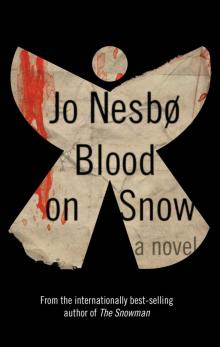 Blood on Snow: A novel
Blood on Snow: A novel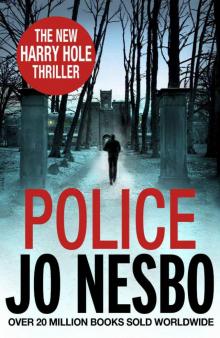 Police: A Harry Hole thriller (Oslo Sequence 8)
Police: A Harry Hole thriller (Oslo Sequence 8) Doctor Proctor's Fart Powder: The Great Gold Robbery
Doctor Proctor's Fart Powder: The Great Gold Robbery Bubble in the Bathtub
Bubble in the Bathtub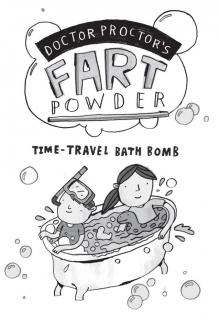 Doctor Proctor's Fart Powder: Time-Travel Bath Bomb
Doctor Proctor's Fart Powder: Time-Travel Bath Bomb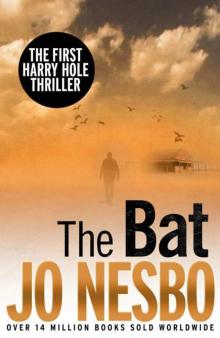 The Bat
The Bat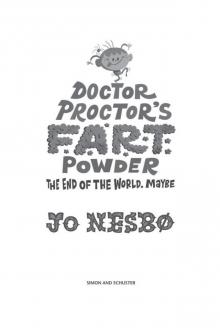 Doctor Proctor's Fart Powder: The End of the World. Maybe.
Doctor Proctor's Fart Powder: The End of the World. Maybe.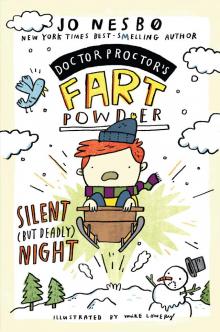 Silent (but Deadly) Night
Silent (but Deadly) Night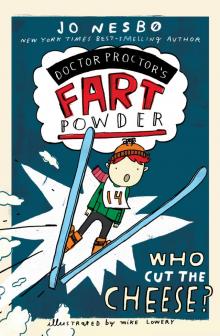 Who Cut the Cheese?
Who Cut the Cheese? Headhunters
Headhunters The Jealousy Man and Other Stories
The Jealousy Man and Other Stories Harry Hole Mysteries 3-Book Bundle
Harry Hole Mysteries 3-Book Bundle The Thirst
The Thirst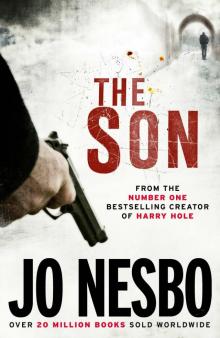 The Son
The Son The Redeemer
The Redeemer The Kingdom
The Kingdom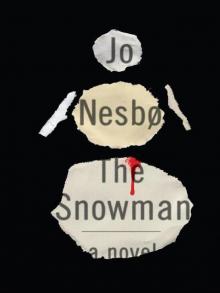 The Snowman
The Snowman The Redbreast
The Redbreast Phantom
Phantom Macbeth
Macbeth The Leopard
The Leopard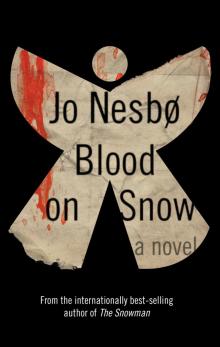 Blood on Snow
Blood on Snow Midnight Sun
Midnight Sun The Redbreast (Harry Hole)
The Redbreast (Harry Hole)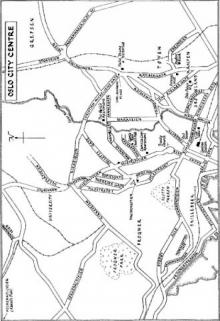 The Devil's Star
The Devil's Star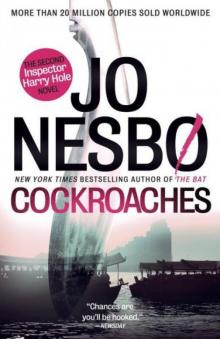 Cockroaches
Cockroaches The Magical Fruit
The Magical Fruit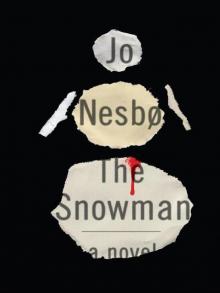 The Snowman: A Harry Hole Novel
The Snowman: A Harry Hole Novel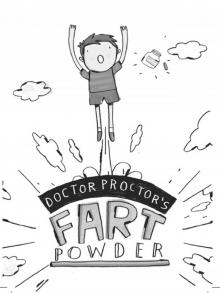 Doctor Proctor's Fart Powder
Doctor Proctor's Fart Powder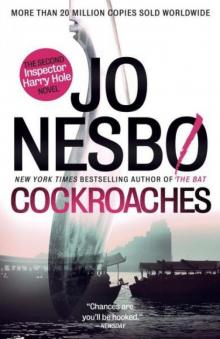 The Cockroaches
The Cockroaches Knife
Knife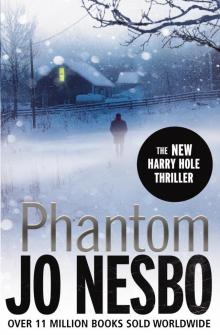 Phantom hh-9
Phantom hh-9 The Redbreast hh-3
The Redbreast hh-3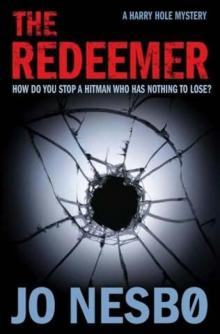 The Redeemer hh-6
The Redeemer hh-6 The Leopard hh-8
The Leopard hh-8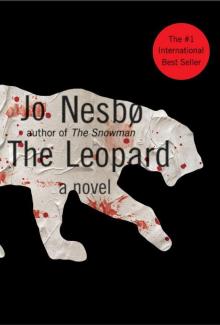 The Leopard: An Inspector Harry Hole Novel
The Leopard: An Inspector Harry Hole Novel The Great Gold Robbery
The Great Gold Robbery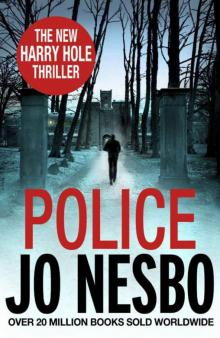 Police hh-10
Police hh-10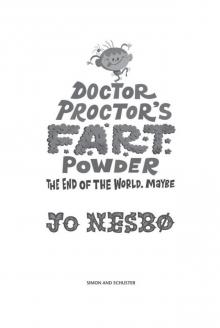 The End of the World. Maybe
The End of the World. Maybe The Thirst: Harry Hole 11
The Thirst: Harry Hole 11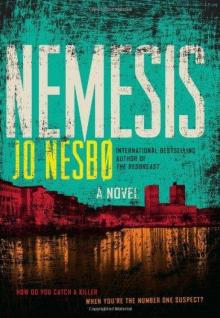 Nemesis - Harry Hole 02
Nemesis - Harry Hole 02 The Devil's star hh-5
The Devil's star hh-5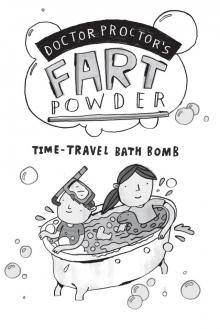 Time-Travel Bath Bomb
Time-Travel Bath Bomb